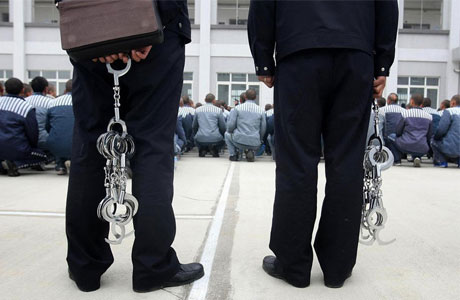Cleaning Up China's Secret Police Sleuthing
 |
Wiretapping, email hacking, cell phone tracking and secret videotaping are just a few of the cloak-and-dagger techniques long employed by police in the course of criminal investigations in China.
But now, for the first time, new rules say that police officers applying for permission to employ these so-called "technological investigation measures" will be subject to "rigorous" reviews, without saying by whom.

- MOST POPULAR




